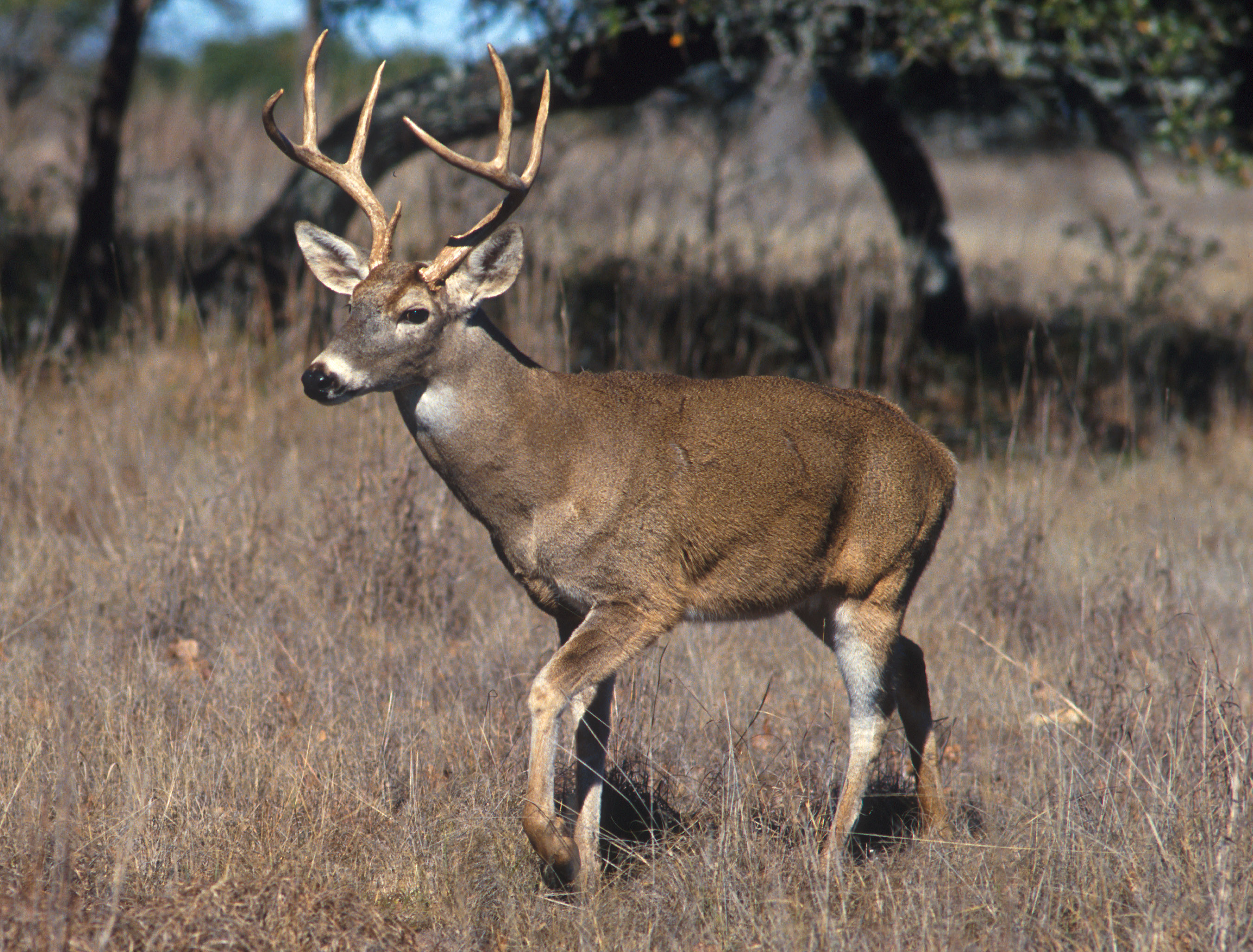
PFAS contamination found in deer in Oscoda Township
Just weeks into Michigan’s deer hunting season, state officials are telling hunters and residents to avoiding eating what they kill in parts of Iosco County.
The Michigan Departments of Health and Human Services (MDHHS) and Department of Natural Resources (DNR) jointly issued a “Do Not Eat” advisory today for deer taken within approximately five miles of Clark’s Marsh in Oscoda Township.
The advisory comes after findings of high levels of perfluorooctane sulfonic acid (PFOS) in a single deer taken about two miles from Clark’s Marsh. The area borders the former Wurtsmith Air Force Base. Before the base closed in 1993, large amounts of fire retardant were used during exercises and seeped into groundwater and other water systems.
The retardant contained PFOS, a type of per- and polyfluoroalkyl substance (PFAS), which has been linked to several forms of cancer, thyroid, hormone and developmental problems when ingested. Consumer goods contain the same chemicals.
For more on PFAS, watch Great Lakes Now Bureau Chief Mary Ellen Geist explain the chemical and emerging contamination issues:
Earlier this year, state officials tested 20 deer in the Wurtsmith area and found one with high levels of PFOS in its muscles. It had levels of 547 parts per billion (ppb), exceeding the 300-ppb level at which the EPA recommends action.
The MDHHS and DNR say PFAS was either not found or was at low levels in muscle samples from the other 19 deer. Although only one deer tested at such high levels, the advisory was issued to protect the health of anyone eating venison from deer taken within about five miles of Clark’s Marsh. The state has plans to test more deer from this area.
Angela Minicuci, MDHHS spokesperson, tells Great Lakes Now that the PFOS deer testing began after hunters asked questions about the state’s “Do Not Eat” advisory for similarly contaminated fish near the former base.
“We tested a total of 128 deer in Alpena, Oscoda, Rockford and Grayling,” she says. “We also compared to 48 samples from 2017. One came back with PFOS levels above 300 ppb at 547 ppb.”
Minicuci admits that research simply hasn’t caught up to the rates of PFAS contamination.
“Essentially there is no science out there,” she says. “The 70 parts per trillion advisory in drinking water doesn’t apply to fish or deer.”
Based on the Oscoda-area data, Minicuci says the state is creating a plan for further deer testing. “Right now, there is no evidence to support that there is a concern of PFOS in deer elsewhere in the state based on the date we’ve collected so far,” she said.
National Wildlife Federation spokesman Drew Youngdyke, who is also an avid deer hunter, tells Great Lakes Now, he is not overly concerned about the advisory extending to deer in other areas of Michigan. “I wouldn’t go into a panic about eating deer if I’m not in the area where the advisory has been issued. Venison is one of the most healthy, lean meats we can eat,” he says. “But it is certainly concerning that PFOS has been discovered in venison in this way, because most deer hunters do hunt for the meat, for the venison. It’s why we go out there. Hundreds of thousands of Michiganders hunt to feed their families. But from the water we can’t drink to the fish we can’t keep and the deer we can’t eat, PFOS is a serious issue we need to address in the state and in this country.”
Here’s an excerpt from the State of Michigan’s advisory:
MDHHS and MDNR advise hunters to dispose of any deer in their freezer that may have come from this area and do not eat it.
If you have health related questions please contact MDHHS at 1-800-648-6942. Hunters can contact the MDNR at 517-284-6057 or DNR-CustomerService@michigan.gov for information about deer tags that were used in this region.
In Michigan, to date, only fish and deer have been sampled for PFAS. For more information about PFAS in wild game and fish, visit Michigan.gov/pfasresponse and go to the Fish and Wildlife button. For more information about wild game consumption, visit Michigan.gov/eatsafegame and go to the Eat Safe Wild Game button.
Other Great Lakes Now coverage of PFAS:
PFAS: All fish in Michigan’s Huron River unsafe to eat
Groundwater: The Sixth Great Lake
Minnesota has fought PFAS for years. Here’s how its plan can help Michigan
How bad is Michigan’s PFAS problem?
Featured Image: A white-tailed deer, Photo by Scott Bauer USDA via wikimedia cc 2.0
1 Comment
-
Is testing for the deer contamination of PFOS going to be available to the public like they are doingforCWD?




